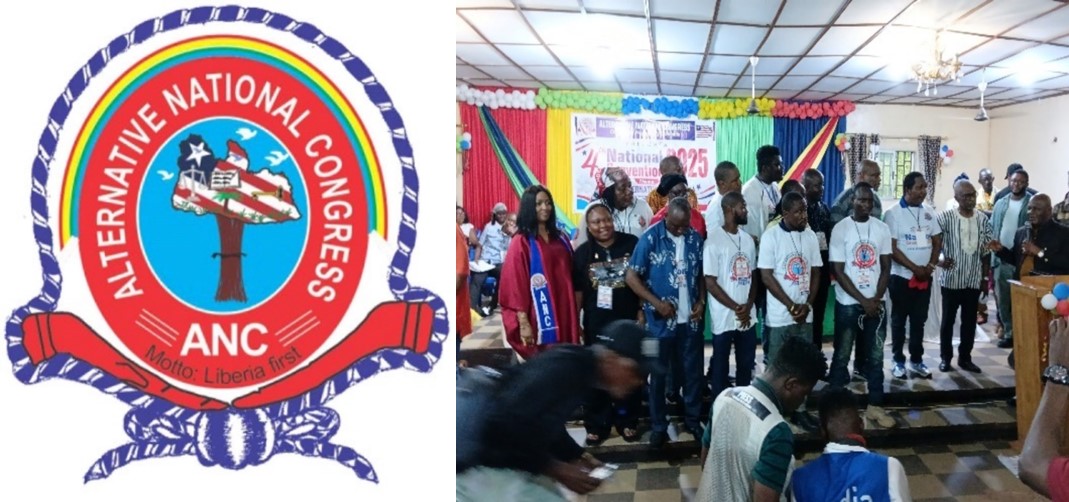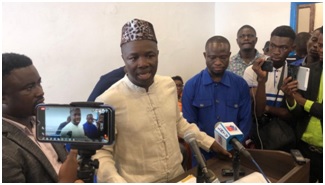
The removal of Martin S. Kollie as the Director General of the National Lottery Authority (NLA) appeared to have been more political than legal, as the Supreme Court has since ruled that his suspension was unlawful.
Located at the Temple of Justice on Capitol Hill, Monrovia, the Supreme Court is the final arbiter of justice in the country, while the NLA, among other things, has a mandate to engage in lottery and other gaming or chance business to generate funds for the Government of Liberia (GoL).
According to a well- placed source at the NLA, since his indefinite suspension more than a year ago, the former NLA boss is yet to receive any of his legitimate benefits, including salaries.
Kollie’s tenure as head of the NLA expired while he served his indefinite suspension. The Hot Pepper’s source at the NLA, who spoke on condition of anonymity for fear of dismissal, asserted that Kollie is yet to receive a penny as it relates to his legitimate benefits and salaries since he was forced out of job, with nothing done by the Executive Mansion regarding his plight.
Several attempts were made to establish contact with Kollie but to no avail. However, according to family sources Kollie fled the country for “fear of his life”.
It can be recalled that on Wednesday, April 10, 2019, the Executive Mansion issued a press release in Monrovia in which it announced the suspension of Kollie for time indefinite.
The press release quoted President George Manneh Weah as stating that Kollie would remain suspended pending the outcome of a full-scale investigation for alleged acts of impropriety. Among other things, the press release added that the Deputy Director General for Operations at the NLA, Nevad Kortu, who is now the head of the NLA, will act as Director General until further notice.
However, the Supreme Court of Liberia on Monday, August 5, 2019 declared that the suspension of the former NLA boss Kollie by the Presidency was unlawful.
Following his suspension, Kollie’s lawyer, Cllr. Stanley Kparkillen, filed a writ of prohibition at the Supreme Court against the government’s decision regarding his client’s “illegal suspension”. Cllr. Kparkillen argued that the NLA Board at no time cited Kollie to acquaint him about the alleged act of impropriety committed as claimed by the Executive Mansion; therefore, he was seeking legal release as the only means to remedy the “politically driven decision” taken by the Executive Mansion.
The Supreme Court said although Article 89 of the Constitution of Liberia, which is regarded as the organic law of the country, specifically created three autonomous public commissions, but the same Article authorizes the Legislature to create other agencies as may be necessary for effective operation of government.
The high court said the NLA enjoys all attributes of an autonomous public commission; therefore, the Legislature acted within the scope of its authority in creating laws for its governance, including the provision of tenure for its Director-General.
The court pointed out that any Act passed by the Legislature is presumed to be Constitutional unless the contrary is clearly shown, holding that the Legislature is presumed to have acted Constitutionally in passing a statue.
The court mentioned that there is no showing that the Act passed by the Legislature providing tenure for the Director-General of the NLA is in violation of the power granted the President of the Republic of Liberia under Article 56(a) of the Constitution, which is considered as the organic law of the land. Article 56 gives the President the authority to appoint and dismiss at his will and pleasure.
The Supreme Court further observed in its Opinion that Section 8.1(b) of the Act establishing the NLA provides that its Director-General shall hold office for the initial period of four years but may be reappointed for another four years and no more.
The Act also states that the Director-General may resign his post by notice in writing addressed to the President of Liberia through the Board of Directors.
But the court indicated that the Director-General may be removed by the President before the expiration of his tenure for inability to discharge the functions of his office, whether arising from infirmity of the mind or any cause or proved misconduct.
The high court added that there is no showing that any of the conditions under which Kollie may be removed by the Executive Mansion before the expiration of his tenure.






